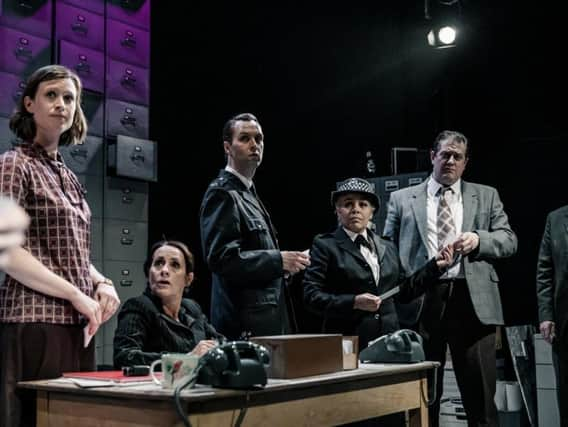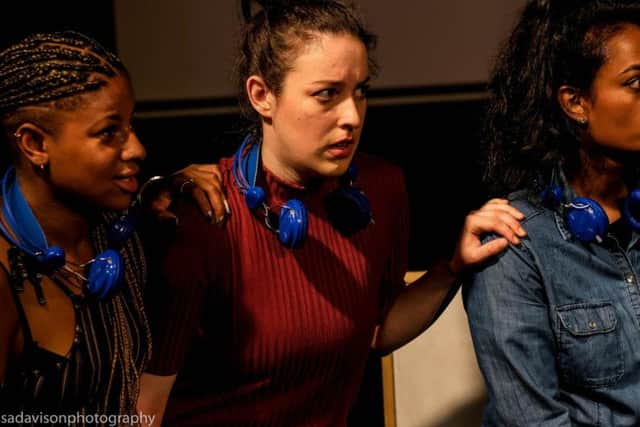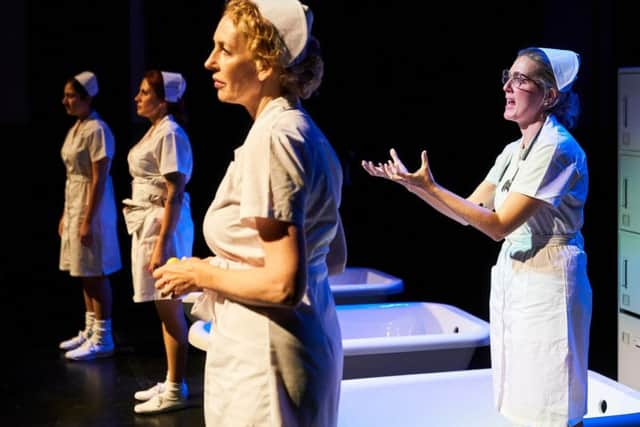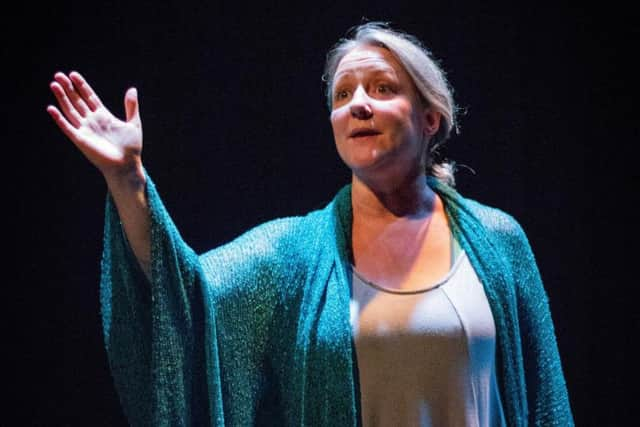Edinburgh Festivals 2019: You have the right to remain talking


They say crime doesn’t pay, but it certainly gets us talking. In an era of proliferating true-crime podcasts, the Fringe is awash with plays about real-life law-breakers. Flick through the programme and you’ll find dramatisations of the life of Myra Hindley, the Manchester Arena terrorist, an eccentric Aer Lingus hijacking, plus assorted robbers and serial killers. That’s in addition to crime-themed improvisation shows and stand-up acts.
Where, then, does the fascination lie? Is it in the offence itself or in the riddle of piecing together who did it? “For us, it’s neither,” says David Byrne, co-writer of The Incident Room, a play about the hunt for the Yorkshire Ripper. “Crime is society under pressure, revealing our true values, fears and prejudices. Traditionally, crime as entertainment is comforting.


Advertisement
Hide Ad“On a Sunday evening, it comforts to know that Steve Arnott and AC-12 spend every hour of the day catching rotten apples. But those super detectives don’t exist. In The Incident Room we don’t show or describe the murders. What fascinates is how a crime like the Yorkshire Ripper murders can define an era, and define everyone it touches.”
If, on the other hand, you do focus on the criminal act, you can find yourself in murky waters. How do you avoid the charge of sensationalism? “It’s a charge I was keenly aware of in writing Bible John,” says playwright Caitlin McEwan, focusing on the 1960s serial killer who found his victims at Glasgow’s Barrowland Ballroom.
“The play started out as an interrogation into the ethics of consuming true crime; there’s a cognitive dissonance when women derive entertainment from something that has the victimisation of women at its heart. There’s a tendency to mythologise male killers at the expense of female victims, so if nothing else, we’d like audiences to leave remembering the names of the women who lost their lives.”
Such stories are, by definition, distressing and you wonder how healthy it is to dwell on them. “Does that then mean ignoring makes it healthier?” counters Jessica Ross, author of Drowning, about four Austrian nurses charged with the murder of 49 patients in 1991. “No, I can’t say ignoring the truth ever made anyone a better person. Horrible events, actions, thoughts and ideas are woven into the story of our humanity. Without ‘bad’ you cannot have ‘good.’”


She recalls reading a book that suggested that without Hitler, we would never be able to define true evil. “You need the darkness to appreciate the light,” she says. “So yes, I think we do need to look at this story, and other stories of what we are capable of as humans, to understand the histories behind them, what could have been done to prevent them.”
“What I’m interested in is the bystander effect,” says Thompson. “We want to hold onto our jobs, we want to hold onto our pensions, so sometimes we unwillingly participate in ethically questionable movements in our culture. In the play, the guard doesn’t like at all what she’s been ordered to do and yet must keep her job. We are all standing on that knife edge. This is crime in the sense of the crime of being a bystander, of being an obedient citizen; we are the guard, let’s not judge her, we created her.”
Advertisement
Hide AdNew York writer and performer Dael Orlandersmith shares Thompson’s reluctance to blame an easy target. “When you point a finger there are three fingers pointing back at you,” she says. ”All of us have a bias.”


Her play, Until the Flood, is a response to the shooting of black teenager Michael Brown by white police officer Darren Wilson in Ferguson, Missouri in 2014. Her intention is not to preach. “Our job as theatre workers is to provoke thought,” she says. “Certain people – very few – have said, ‘Do we need to see this? This has nothing to do with me.’ But I remember seeing films like A Taste of Honey [set in white working-class Salford] and in school we’d talk about it the next day and say, ‘Oh man, that’s our family too.’ I’ve been performing in Galway, where people are predominantly white, and they’ve been responding very strongly to it. If somebody’s doing their job, we’ll get it.”
Advertisement
Hide AdThe Incident Room, Pleasance Courtyard, until 26 August; Bible John, Pleasance Courtyard, until 26 August; Drowning, Pleasance Courtyard, until 26 August; Watching Glory Die, Assembly Rooms, until 25 August; Until the Flood, Traverse, until 25 August.